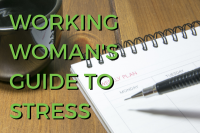It’s a myth that women don’t help other women: mentoring and sponsoring play a huge role in the modern workplace

Despite recent reports to the contrary, the myth of the queen bee who fails to help other women in the workplace continues to resurface. I’ve had no experience of other women, or indeed men, “doing me wrong” at work. It always pains me to hear internalised misogyny and complaints about women not being good leaders or managers. Sure, I’ve experienced dreadful bosses, most of them men, some of them women, but it’s a people thing, not a woman thing. People can be wholly unsupportive and difficult to work for, no matter who they are.
In reality, far from being in it just for themselves, a huge number of successful women are helping other women climb the career ladder. Mentoring and sponsoring are the buzzwords of modern business.
There’s a distinction to be made here: a mentor encourages and supports someone in their existing role, whereas a sponsor bigs them up to others.
When I was at the BBC, working as a senior producer of business programmes on Radio 4, I was a good mentor. I only know this because the business reporter on BBC Breakfast, Steph McGovern, told me so. She said she wouldn’t be where she was today without me.
“I feel really lucky that you helped me,” she told me recently. “The BBC is an intimidating place, but you taught me not to be afraid, to ask for help and push myself.”
The support I gave her in her early career may have fitted the brief of being a mentor but I didn’t realise this at the time. I was an accidental mentor.
All I knew was that Steph was a chomping-at-the-bit, enthusiastic, common sense kind of a gal who’d turned up at the door of Radio 4 one day in the early noughties to be interviewed about winning an award as an engineering student.
Despite her nerves, she was engaging on air and as she had some hours to kill before her train home, I asked her to join us for our post-show debrief in the BBC bar. It was then that I knew Steph would go far, because she asked question after question, as a journalist would, about how it all worked, how we put the show together, what the BBC was like and whether we knew anyone famous.
I spotted her talent immediately and wanted to help her make the most of it. I also believed the BBC would be a better place with people like her in it.
So she came to work for me on a work experience placement. As well as showing her some practical skills, such as how to make a telephone call as a researcher and write a cracking briefing document that would actually get read, I spread the word that she was good. I continued to do this when she landed her first job as a researcher and when she became business editor Robert Peston’s producer on the 10 O’clock News. From there, she joined me in live television presenting.
Why was I not aware back then that I was a mentor? Well, it just wasn’t a conscious choice 15 years ago. It wasn’t part of the culture and gender was certainly not on the agenda.
More than a decade later, it’s a different story. I’m glad Steph is now mentoring women along their career paths. One asked her, “Why are you helping me?” to which she answered, “Because I was helped by someone”. This is how the legacy of a good mentor continues.
This article was originally published on The Guardian 24th June. Read the original article here.









Leave A Comment